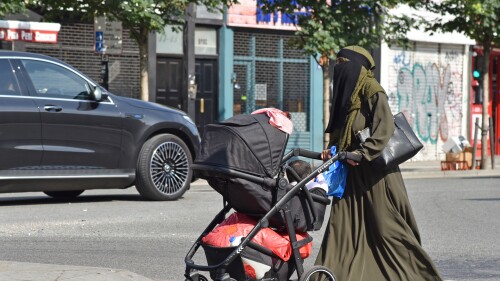Last Thursday, a Coptic Christian church located in Benghazi, Libya, was attacked by armed Muslim militants. Initial reports indicate that at least one priest, Fr. Paul Isaac, was injured, as well as his assistant. It is the second church in Libya to be attacked in two months. Earlier, on Sunday, December 30, an explosion rocked a Coptic Christian church near the western city of Misrata, where a group of U.S. backed rebels hold a major checkpoint. The explosion killed two people and wounded two others, all Egyptians.
Such attacks rarely if ever occurred under Col. Gaddafi.
There are currently few details. Based on countless examples from past experience—including centuries of demonstrable continuity—there were likely loud cries of “Allahu Akbar!” with an exuberant sense of Islamic supremacism in the air. As for motivation, it was likely sheer anti-Christian sentiment. For where else are Christians being Christians than in church—where they are being as apolitical as they are being spiritual, simply trying to worship their God in peace, only to be attacked yet again.
At any rate, here is one more piece of solid evidence to validate my observation from last week—that the recent spate of arrests of Christians in Libya on the accusation that they are “missionaries” is a pretext for simple, good old-fashioned Christian hate. After all, this armed attack on a Christian church in Benghazi occurred right around the same time 100 Christian Copts were arrested and tortured, their heads shaven and their tattooed crosses burned off with acid.
Libya’s Islamists had no problem arresting and torturing these Copts, indeed, boasting of it by posting a video of them on the Internet. Libyan law makes it illegal for any Christian to display their Christianity or, worse, preach it. Thus the Islamic militias are off the hook, as they were merely performing the equivalent of a “citizen’s arrest” when they abducted and trapped all those Egyptian Christians because they had crosses, Bibles, and religious icons.
Ironically, whereas the Libyan government has not condemned the arrest and abuse of Christians accused of proselytizing—how can it when its own laws ban non-Muslim missionary activities?—it has “voiced its concern” and “expressed regret” for this latest attack on Christians, the Benghazi church raid. On Sunday, Libya’s Ministry of Foreign Affairs and International Cooperation said that the attack was “contrary to the teachings of our Islamic faith and customs and as well as international covenants on human rights and fundamental freedoms and respect for the monotheistic religions.” The statement further called on “all Libyan citizens to respect those from friendly and sister countries living in Libya and to respect their beliefs.”
Such benevolent assertions are contradictory on many levels. Do Libyan authorities really think that enforcing a ban on Christian preaching—that is, banning Christian free speech according to the Muslim belief that Christianity is a false religion that cannot be given a platform to spread—would not further prompt or at least validate fierce anti-Christian sentiment among the average Libyan? In other words, if Christianity is portrayed by Muslim authorities as a religion that must be denied utterance because it is false, is it not natural that anti-Christian sentiment would metastasize to the average Libyan Muslim, leading to things like attacks on churches, which are then seen as breeding grounds of falsities or—as the jihadi terrorists who slaughtered nearly 60 Christians in the 2010 Baghdad church attack put it—"nests of paganism”?
How, then, can the Libyan government call on Libyans to “respect their [Christians’] beliefs”? How can it invoke “international covenants on human rights and fundamental freedoms"—covenants which permit free speech, including religious proselytism, which Muslims in the West routinely exercise? Is this not just mere talk?
And that’s just it; Libya’s more fervent Muslims know better. If Christian churches are not (currently) banned by Libyan law, their construction on Muslim soil is banned by Islamic Sharia law, which, incidentally, also happens to be the source for the ban on Christian proselytism. (According to Muslim tradition, in the 7th century Caliph Omar ordered conquered Christians not to build new churches and not to preach Christianity around any Muslim.)
Such is the interconnectivity of Islam’s teachings. Where one anti-Christian law is upheld, many manifestations of anti-Christian sentiment—along with justifications and rationalizations—will follow.
Such also is the interconnectivity of Benghazi: where American embassies are attacked and diplomats killed, so too are Christians and their churches unwelcome. They are all infidels—false, to be despised and denied. The only Benghazi-related incongruity is that the United States government helped empower the jihadis and the Obama administration continues to support them.
Raymond Ibrahim is a Shillman Fellow at the David Horowitz Freedom Center and an Associate Fellow at the Middle East Forum.







